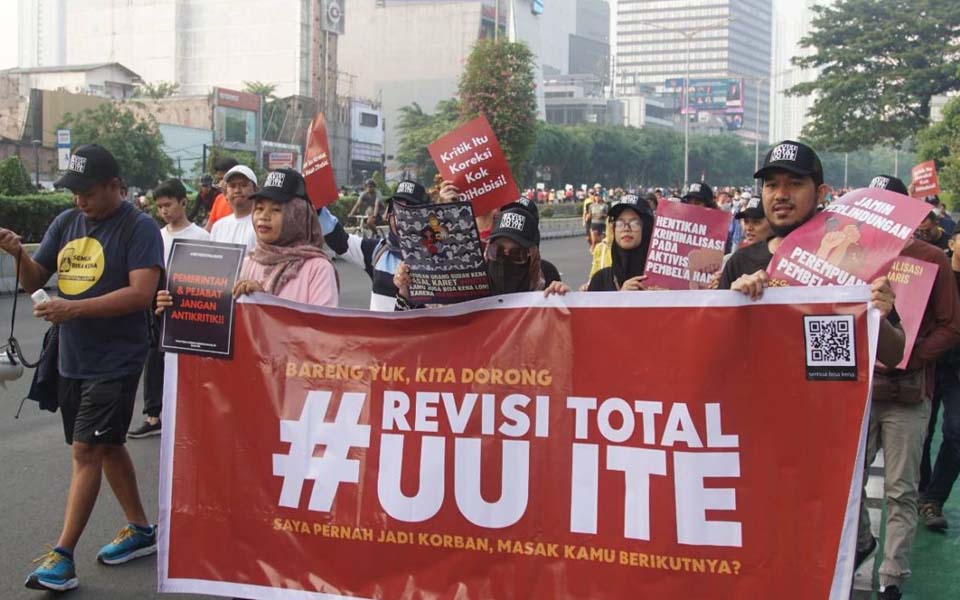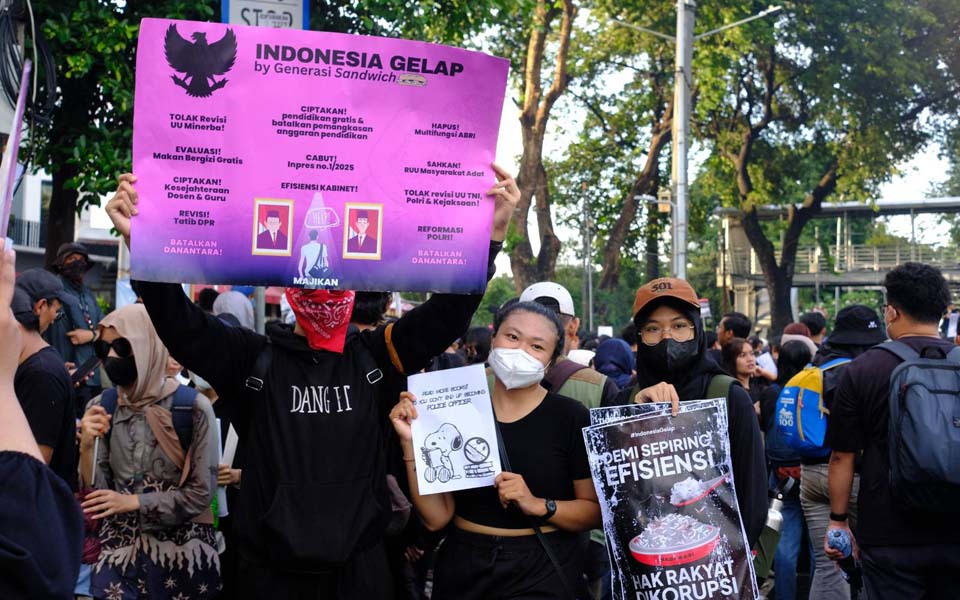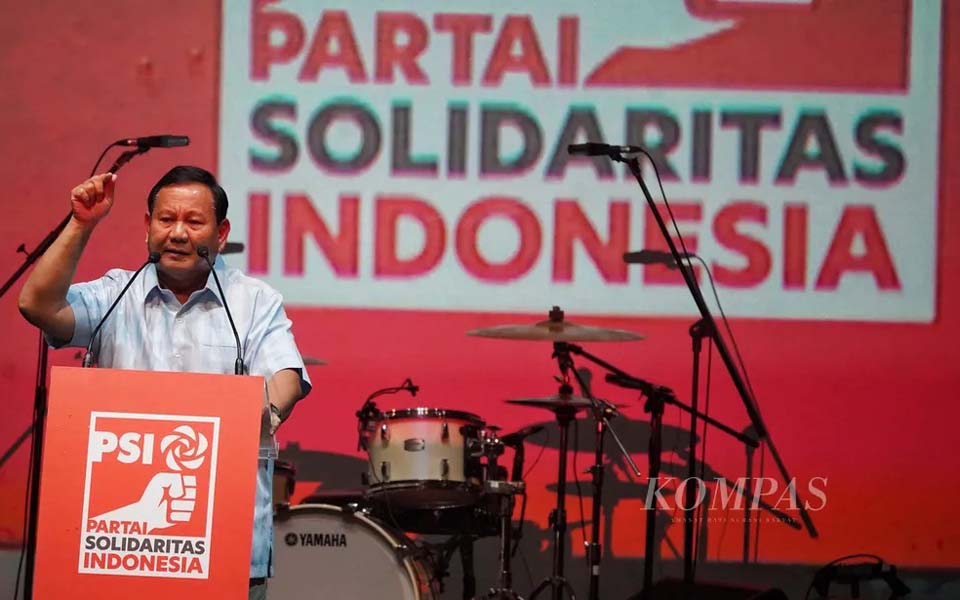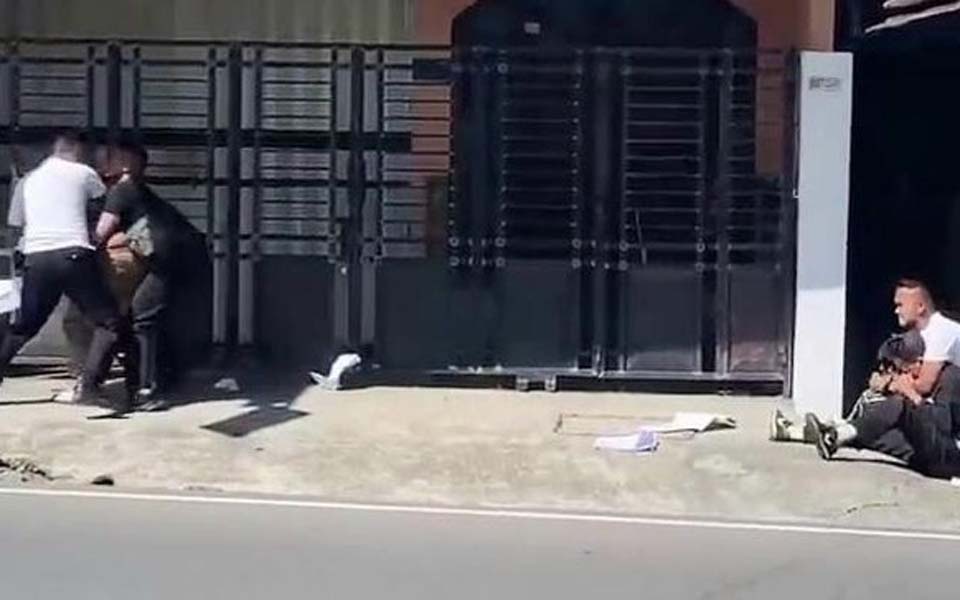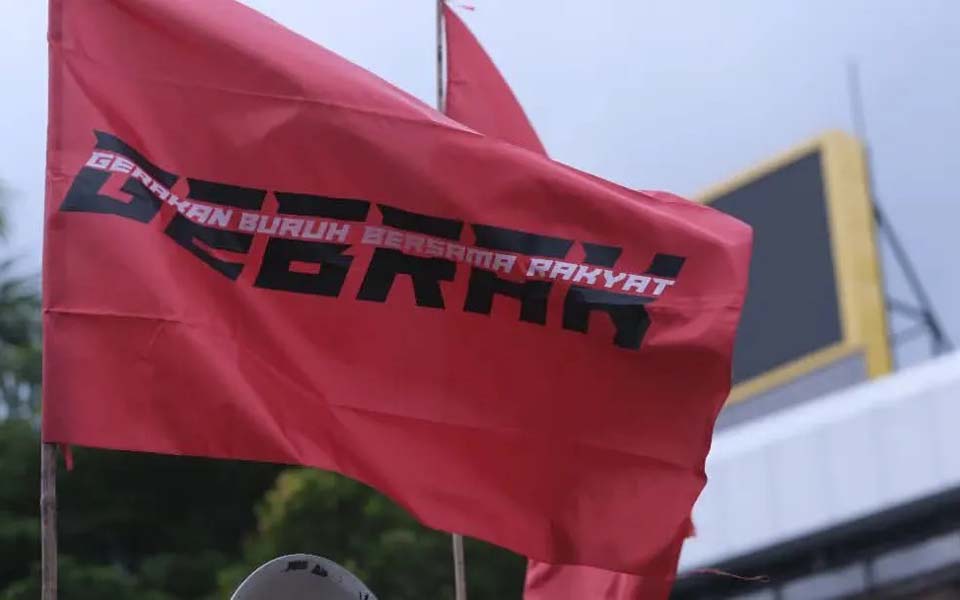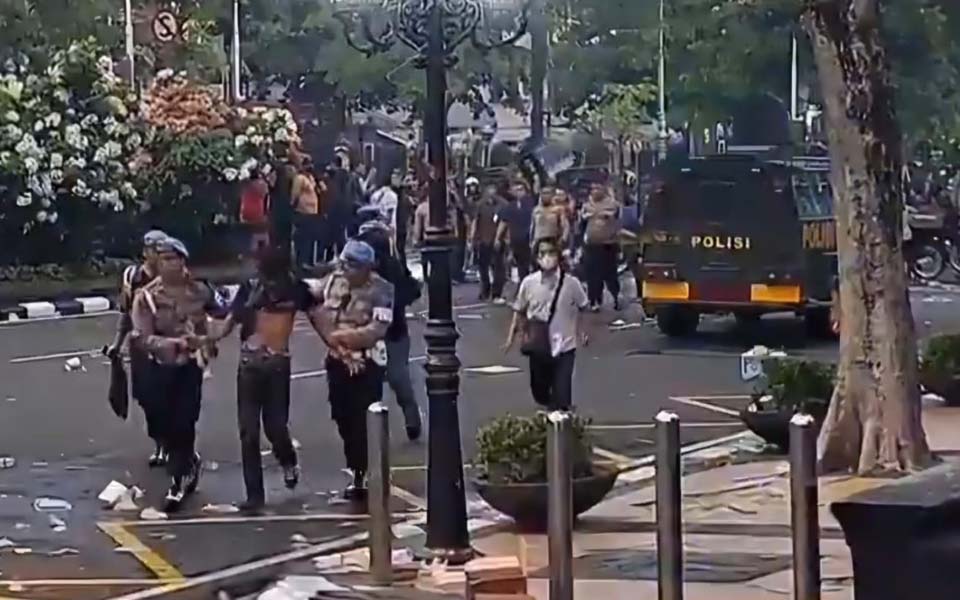Responding to the Constitutional Court's (MK) ruling that exempts government agencies, institutions and corporations as parties that can file defamation lawsuits, and stated that disturbances/riots in digital space are not criminal offenses under the Electronic Information and Transactions Law (UU ITE), Amnesty International Indonesia's Executive Director, Usman Hamid, said:
"This Constitutional Court ruling further confirms that there are chronic problems in the implementation of the ITE Law in society. Through this decision, the Constitutional Court has carried out its role as a judicial institution by reducing the risk of human rights violations through the arbitrary use of defamation articles by the state and corporations.
However, the threat to freedom of expression will remain until the government and the House of Representatives (DPR) revise the defamation articles in order to close the loopholes for anyone to abuse them in order to silence criticism in society. Amnesty International opposes laws that criminalise defamation, whether of public figures or private individuals. The issue should be resolved through civil lawsuits. State institutions themselves are not entities whose reputations are protected by human rights laws.
The ruling that excludes digital space as a criminal offense in the ITE Law also guarantees freedom of expression in cyberspace. The National Police's (Polri) cyber patrols that often target peaceful expressions in digital space must be stopped immediately following the Constitutional Court ruling.
Freedom of expression is a right protected by both international and domestic human rights laws, including the 1945 Constitution. While this freedom may be restricted to protect the reputation of others, international human rights standards recommend that this should not be done through criminalisation. Prohibitions on appeals to national, racial or religious hatred is also allowed, but such speech must clearly indicate the intent to incite others to commit discrimination, hostility or violence against these groups.
The Constitutional Court's ruling must be read as a momentum for the state to immediately reform policies that have so far silenced criticism. The government, parliament and law enforcement agencies have a constitutional obligation to follow up on this decision by thoroughly evaluating and revising the ITE Law, including other problematic articles such as hate speech and blasphemy, which are often used as tools to criminalise peaceful expression in both physical and digital spaces. Also, other regulations that open opportunities for criminalisation of citizens' free expression must be removed or revised so that they are no longer used as tools to silence critical voices.
The Constitutional Court's ruling is also an opportunity to improve the relationship between the state and its citizens. The state must be present not as a party that silences citizens, but as a protector of citizens' rights, including their freedom of expression.
Amnesty International Indonesia noted that between 2019 and 2024 there were at least 530 cases of criminalisation of freedom of expression under the ITE Law against 563 victims. The perpetrators were dominated by the National Police Cyber Patrol (258 cases with 271 victims) and reports from regional governments (63 cases with 68 victims)."
Background
In a statement on its official website, the Constitutional Court issued a number of important rulings during hearing in Jakarta on Tuesday April 29.
One of these excludes government institutions, corporations, professions and positions as the parties that can report alleged defamation as regulated under the ITE Law. The Constitutional Court stated that only individual victims can make reports of alleged defamation.
This is stated in Constitutional Court Ruling Number 105/PUU-XXII/2024. The Constitutional Court ruling partially granted a petition by a Karimunjawa resident from Jepara regency, named Daniel Frits Maurits Tangkilisan, in a judicial review of Article 27A in conjunction with Article 45 paragraph (4) of Law Number 1/2024 concerning the Second Amendment to Law Number 11/2008 on Information and Electronic Transactions (ITE Law).
"Thus, in order to guarantee legal certainty as regulated under Article 28D paragraph (1) of the 1945 Constitution of the Republic of Indonesia, Article 27A of Law 1/2024 must be declared conditionally unconstitutional as long as the phrase 'other people' is not interpreted as 'except for government institutions, groups of people with specific or certain identities, institutions, corporations, professions or positions'", said Constitutional Justice Arief Hidayat in reading out the court's legal considerations at a hearing chaired by Chief Justice Suhartoyo.
In another ruling, namely regarding the request for a judicial review of Article 28 paragraph (3) and Article 45A paragraph (3) of Law Number 1/2024 on the Second Amendment to Law Number 11/2008 on Electronic Information and Transactions (ITE Law), the Constitutional Court stated that riots or disturbances in digital/cyber space are not included in the criminal offenses of the Electronic Information and Transactions Law. This was read by Suhartoyo in the ruling on a hearing for case number 115/PUU-XXII/2024. The request for a judicial review of the ITE Law was submitted by Jovi Andrea Bachtiar.
"Granting the Applicant's request in part. Declaring that the word 'riot' in Article 28 paragraph (3) and Article 45A paragraph (3) of Law Number 1/2024 on the Second Amendment to Law Number 11/2008 on Electronic Information and Transactions is contrary to the 1945 Constitution of the Republic of Indonesia and does not have legally binding force conditionally as long as it is not interpreted as 'riots are conditions that disrupt public order in physical space, not conditions in digital/cyber space'", said Suhartoyo reading out the verdict.
The Constitutional Court stated that the regulation on the act of spreading fake news using information technology that causes unrest in society, as regulated in the norms of Article 28 paragraph (3) of Law Number 1/2024 on the Second Amendment to Law Number 11/2008 on Information and Electronic Transactions, has apparently created legal uncertainty when associated with the Elucidation of Article 28 paragraph (3) of the ITE Law, which states that what is meant by "unrest" is a condition that disrupts public order in physical space, not conditions in digital/cyber space.
[Translated by James Balowski. The original title of the article was "Putusan MK jadi momentum revisi menyeluruh pasal-pasal bermasalah UU ITE".]





